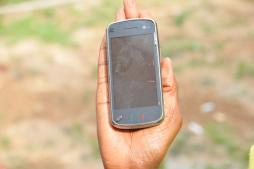Do m-health tools really work? Testing the impact of mobile technology on maternal and child healthcare

MobileActive has posted an in-depth new case study that focuses on evaluating mobile health interventions.
Written by Kate Otto, the case study looks at testing the efficacy of using mobile phones in health care in Ethiopia. A team of researchers from The World Bank and Addis Ababa University developed a mobile tool that enables rural community health workers to improve antenatal care and delivery services, improve vaccination coverage, and facilitate emergency referrals. The team is taking the evaluation process beyond the usual survey method and are instead rigorously testing the mobile phone effects through more rigorous research.
The researchers randomly selected three Ethiopian districts and applied the tool in three ways:
- Treatment 1: All Health Extension Workers (HEW) received mobile phones equipped to perform the three use cases (improving antenal care/delivery, vaccination coverage, and emergency referrals).
- Treatment 2: All HEWs and two Volunteer Community Health Workers (VCHW) within each district received mobile phones; HEW phones are software-equipped for the three use cases, while VCHWs received dumbphones intended to make missed calls only.
- Control: No mobile phones distributed.
The test is on-going, but the results will be applicable to organizations that are considering deploying mobile tools into their work. The research is not looking at developing a scalable mobile tool, but is rather examining how mobile tools are used and how they compare to existing methods



